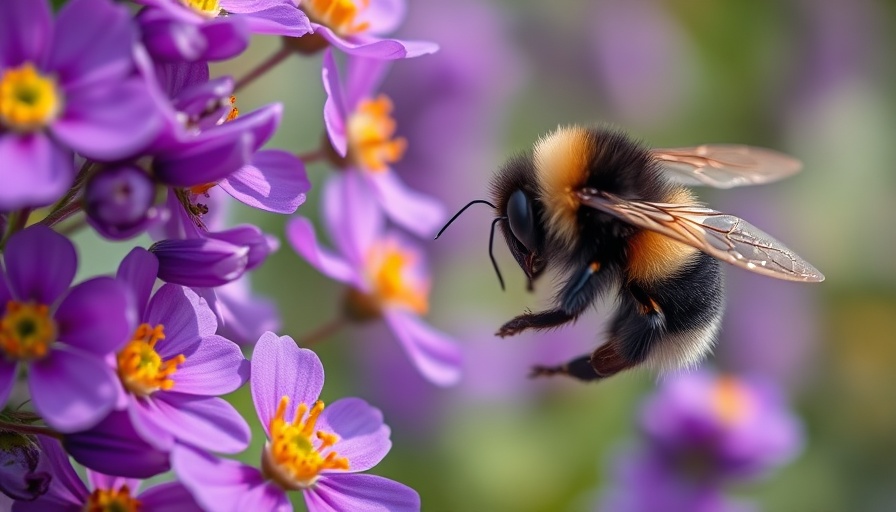
The Surprising Impact of Sound on Plant Behavior
In a world where the intersection of nature and science continuously reveals astonishing phenomena, a new study underscores the extraordinary ways plants interact with their environment. Researchers led by Zoology Professor Francesca Barbero from the University of Turin recently uncovered that plants, particularly snapdragons, can detect the buzzing sounds of bees and respond by ramping up nectar production. This revelation challenges the traditional perception of plants as passive entities in the pollination process, highlighting a dynamic and responsive relationship in this symbiotic ecosystem.
A Vital Survival Strategy for Plants
The findings raise intriguing questions about how plants ensure their survival amid a network of pollinators and nectar thieves (often termed as "nectar robbers"). By increasing nectar output in response to specific bee sounds, snapdragons may be employing a survival tactic that prioritizes beneficial pollinators. Barbero stated, “The ability to discriminate approaching pollinators based on their distinctive vibroacoustic signals could be an adaptive strategy for plants.” This adaptation could improve reproductive success, keeping beneficial pollinators around longer as they flock to more nourishing flowers.
Buzzing Bees and Plant Responses: The Science Behind It
Understanding the science behind this phenomenon requires delving into the acoustic dynamics of pollination. When bees approach flowers, they create unique sounds through their wing flaps and body movements. The research team used recordings of a specific type of bee, the Rhodanthidium sticticum, known for its close relationship with snapdragons, to investigate how plants reacted to these auditory signals. Much like humans respond to alarm bells or the sound of a dinner bell, plants seemed to ‘listen’ and react favorably to the buzzing of their winged visitors by adjusting their nectar production levels.
Implications for Eco-Conscious Hospitality
For boutique hospitality professionals keen on sustainability, these findings suggest vital implications. Establishing nature reserves around lodgings could support local bee populations, fostering an environment where such coevolutionary relationships flourish. This not only enhances the local biodiversity but can also create visually stunning landscapes that attract guests interested in eco-tourism and experiencing nature more intimately.
Adaptable Strategies for the Future
If plants can adapt their strategies to engage with pollinators dynamically, can we too learn to integrate these insights into our approaches toward environmental stewardship and sustainable business practices? As more eco-conscious lodging businesses emerge, embracing chaos gardening techniques, which encourage untamed and diverse plant life, may attract a larger variety of pollinators. Additionally, awareness about the impact of microplastics on ecological systems can further enhance the appeal to nature-loving guests.
Creating Habitats that Foster Biodiversity
Establishing habitats that facilitate natural pollination processes can improve both ecological health and the guest experience. Many boutique hotels and eco-lodges can introduce local flora, including snapdragons, to their gardens, educating guests about the importance of these interactions. Furthermore, engaging visitors in the creation of pollinator gardens could create memorable experiences while fostering climate awareness.
Conclusion: Sound Lessons from Nature
The complex interplay between plants and pollinators serves as a reminder that every element in our environment is interconnected. By advocating for practices that support biodiversity and engaging with the rhythms of nature, hospitality professionals can create sustainable experiences that resonate deeply with their guests. Cultivating awareness of our impact on the environment is crucial—at the heart of it all, every small decision can yield significant changes.
So, as you integrate these practices into your eco-conscious lodging business, consider how sound, both the buzz of bees and the rustle of leaves, plays a fundamental role in nurturing our fragile ecosystems. Together, we can create a harmonious relationship between hospitality and nature for generations to come.
 Add Row
Add Row  Add
Add 




Write A Comment